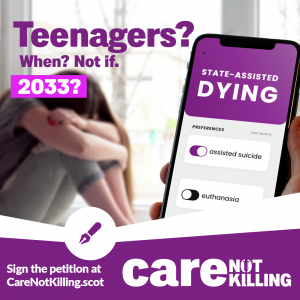
2033 – Teenagers?
What happens when you imagine teenage cries for help becoming a gateway to assisted suicide? How do you feel when you realise that this is already happening in Belgium?

What happens when you imagine teenage cries for help becoming a gateway to assisted suicide? How do you feel when you realise that this is already happening in Belgium?
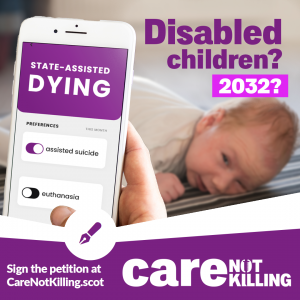
Dutch law permits children under 1 year old (inc. newborns) with disabilities like spina bifida to be euthanised with parental consent under a eugenic policy, the Groningen Protocol.
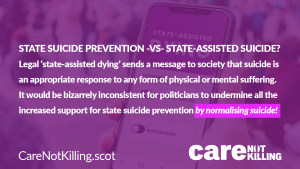
It’s bizarrely inconsistent to increase support for state suicide prevention at the same time as normalising suicide by legalising state-assisted suicide. It sends a message to society that suicide is an appropriate response to any form of physical or mental suffering.
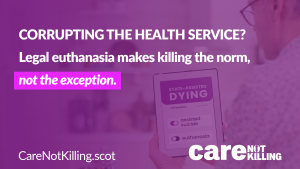
Legal euthanasia makes killing the norm, not the exception. There is a danger of it corrupting the whole practice of medicine.
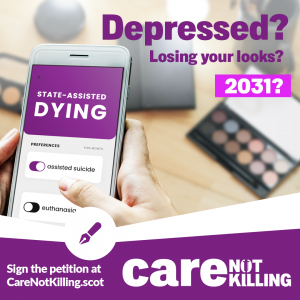
Think this isn’t possible? It already happened. An Italian woman had an assisted suicide as she was lonely and ‘weighed down by aging and the inevitable loss of the looks of which she was proud.’
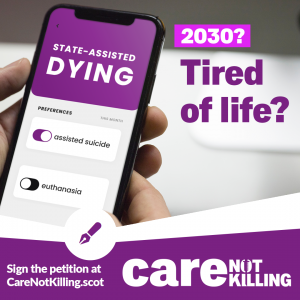
If the main reasons why people seek assisted suicide are being “less able to engage in activities making life enjoyable” and “losing autonomy”, on what logical basis will you be able to prevent it from eventually being extended to people who are just “tired of life?”
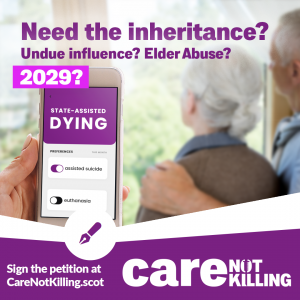
How can you determine whether someone choosing assisted suicide has not been subject to undue influence?
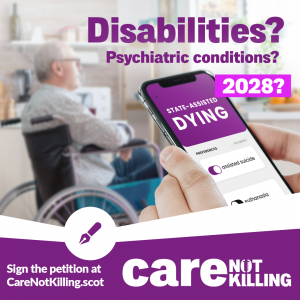
Are some lives just of less value than others? In Scotland, we should support people with disabilities to live, not die.
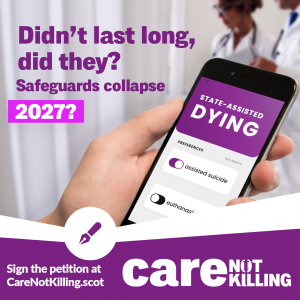
There is no safe way to legalise ‘state-assisted dying.’ Canada shows courts overrule safeguards & extend euthanasia to others despite politicians’ best intentions.
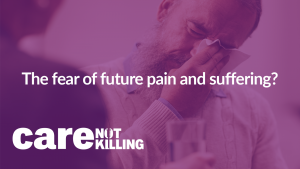
The fear of future pain and suffering is often cited as the main reason why people might wish for euthanasia or assisted suicide, but when patients are cared for properly, they seldom want to end their lives.
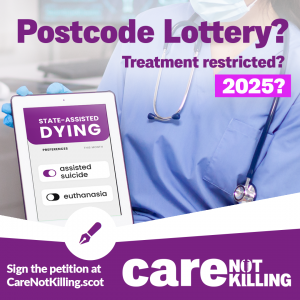
Assisted suicide reduces the incentive to invest in palliative care & it increases the systemic pressure to end patient’s lives.
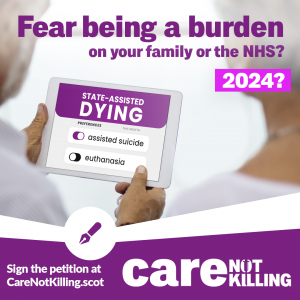
People who are vulnerable must be protected from feeling pressure to take their own lives.
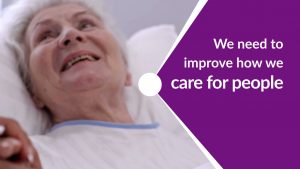
We all want to help people who experience pain and distress at the end of life, but political decisions can be disastrous for future generations. What kind of Scotland do we want to become?

Care Not Killing was set up in 2006 as an alliance of individuals and organisations which brings together disability and human rights groups, healthcare providers, and faith-based bodies, with the aims of promoting more and better palliative care; ensuring that existing laws against euthanasia and assisted suicide are not weakened or repealed; and helping the public to understand the consequences of any further weakening of the law.
Care Not Killing Scotland
6 Marshalsea Road
London SE1 1HL
Media enquiries:
Please contact Tom Hamilton Communications on 07836 603977
Care Not Killing Scotland is a trading name of CNK Alliance Limited, a Limited Company in England and Wales, Company No. 06360578
© CARE NOT KILLING SCOTLAND - All rights reserved